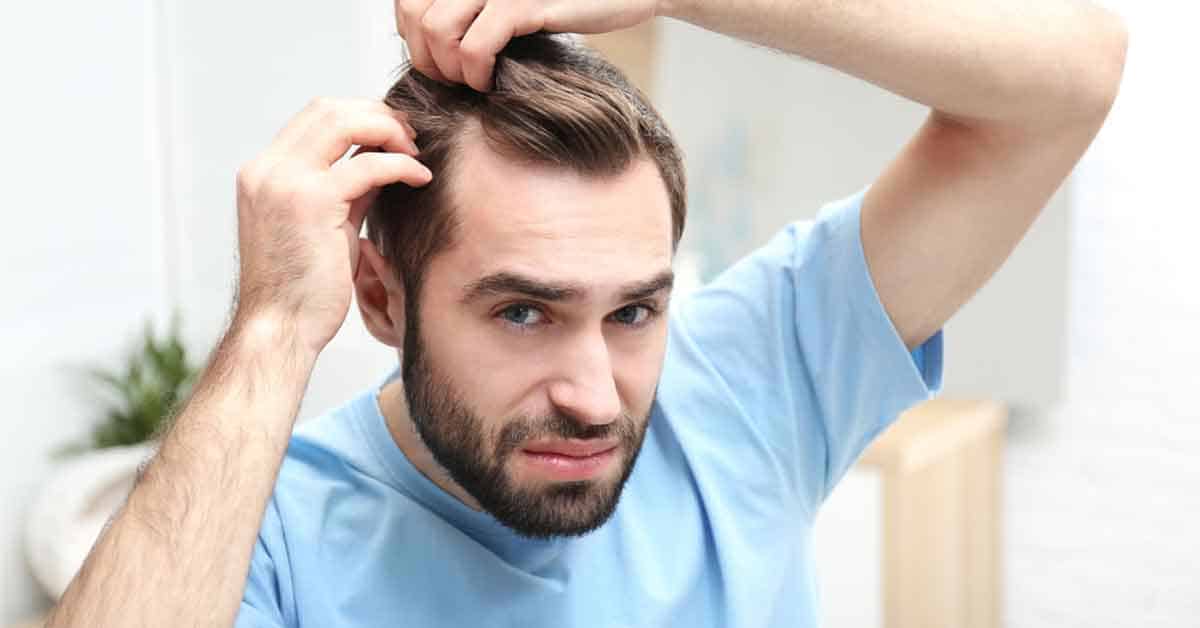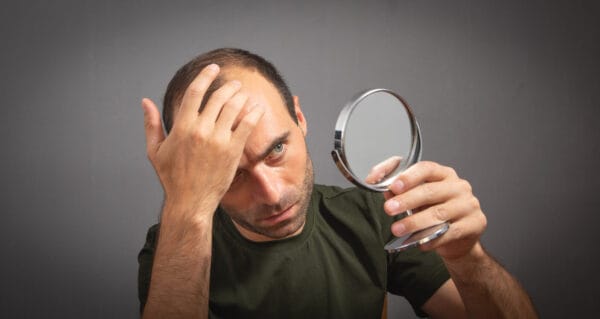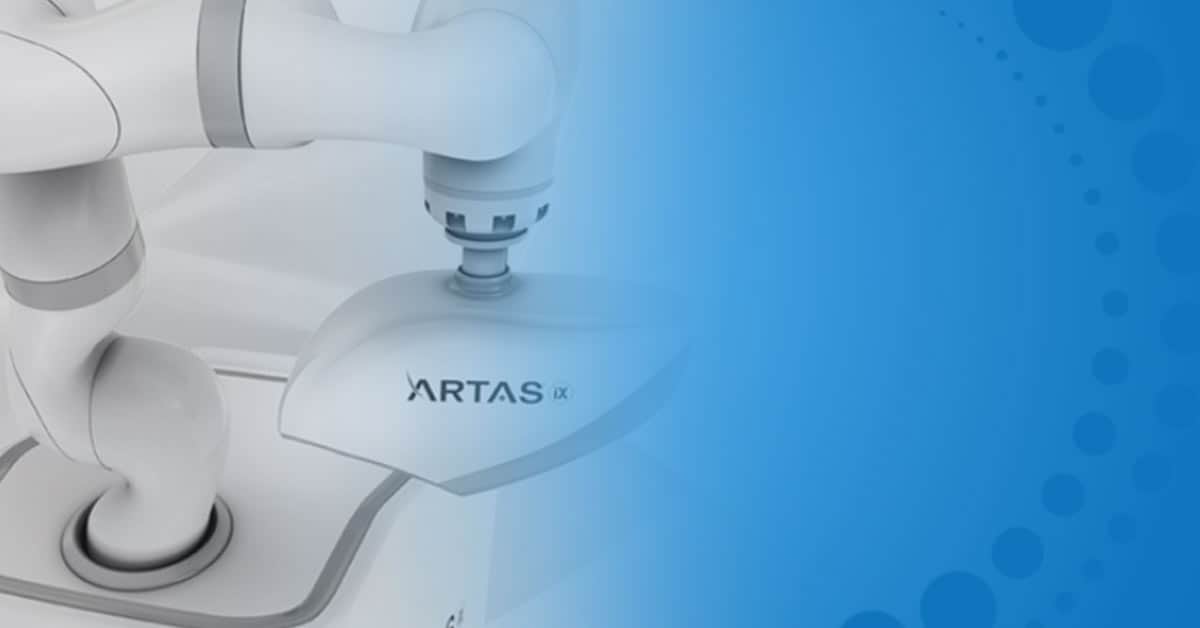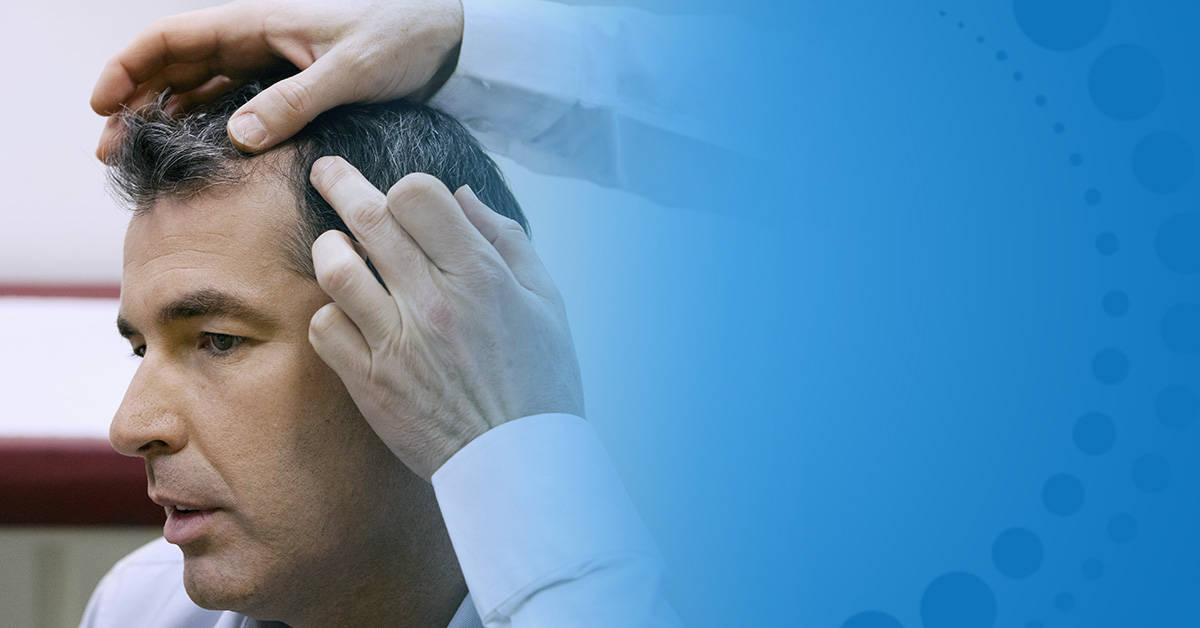The Psychology of Hair Loss

How you look strongly affects a person’s confidence and mental health. We also tend to express ourselves through our hair styles so watching your appearance change as your hairline recedes and thins can make it feel like you’re seeing a stranger in the mirror. The impact of male hair loss on a person’s life cannot be overstated.
Can Stress and Anxiety Affect Your Hair?
Hair loss and emotional stress are absolutely linked. In fact, the Mayo Clinic cites three forms of hair loss that have been shown to be connected to high stress levels:
- Telogen effluvium is the most common. This is when high stress for a prolonged period can trigger the resting phase of the hair cycle for a longer stretch of time and forces more hair follicles than usual into that phase.
- Trichotillomania is a psychological condition that causes the person to pull out their hair as a way of coping with painful emotions, stress, loneliness, etc.
- Alopecia areata is an autoimmune disease where the body attacks its own hair follicles, leading to hair loss. It’s believed that severe stress can be a factor in causing alopecia areata.
Figuring out the reason for the hair loss is crucial, though stress management is generally beneficial for everyone. If you’re noticing hair thinning, a consultation to determine the cause is wise.
Does Your Hair Show Your Personality?
Yes, whether your hair is long or short, simple or elaborate, colored or natural… how you wear your hair is one way to express your personality. In fact barbers, stylists, and therapists sometimes attribute personality traits to certain hairstyles – such as saying curling your straight hair represents a subconscious desire for adventure.
Is Hair Loss a Sign of Depression?
The current research considers depression to be a contributing factor to hair loss, but not necessarily the sole or primary cause. Stress can cause hair loss, and stress can be a contributing factor to depression. However, doctors also haven’t ruled out the possibility that there’s a more direct (but as yet undiscovered) link between depression and hair loss.
Can Going Bald Lead to Depression?
Yes, watching your hair thin and hairline recede can cause a great deal of emotional stress and even depression. Hair loss has been associated with anxiety, depression, social phobias, loss of confidence, insecurity, lethargy, and even poor sleep – which can make the other symptoms worse.
You can tell that hair loss is affecting your mental health if:
- You worry about what people think about your appearance
- You’re concerned thinning hair makes you look old
- Appearance concerns lead you to avoid social situations and turn down invitations
- You avoid looking in the mirror
- You’re obsessed with wearing hats, scarves, etc. to conceal hair loss
Talk to Austin Hair Restoration Clinic About Your Hair Loss
Don’t let the impact of male hair loss ruin your confidence or self-image. Call us for a consultation to determine if you’re a good candidate for the ARTAS® Robotic Hair Restoration procedure. Contact us today for a free consultation.
Dr. Sanjeev Dubey is an experienced hair restoration and emergency medicine physician in Austin, Texas. He holds a medical degree from the University of Texas Medical Branch (UTMB) and has been practicing medicine for over two decades. His affiliations include Seton Medical Center Austin, Seton Northwest, and various local hospitals.





